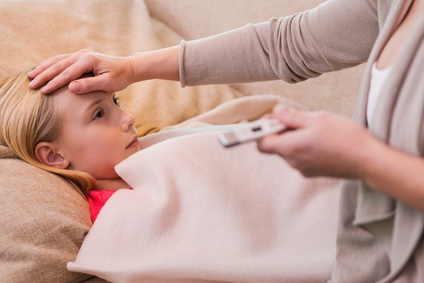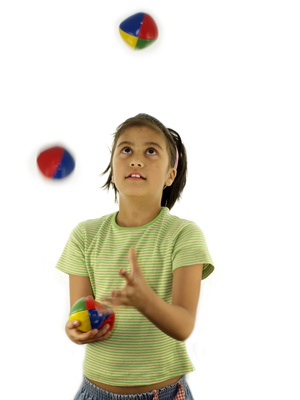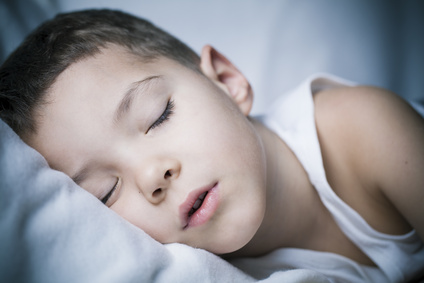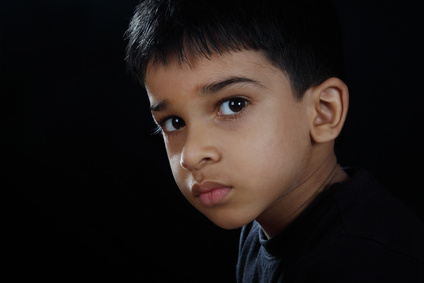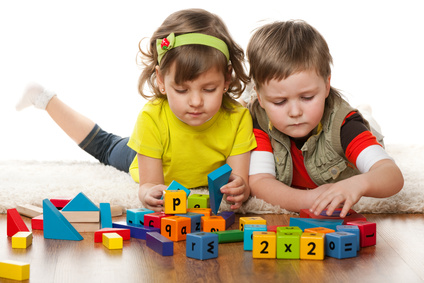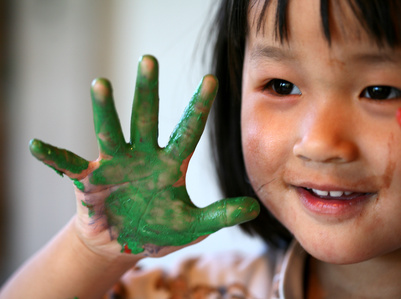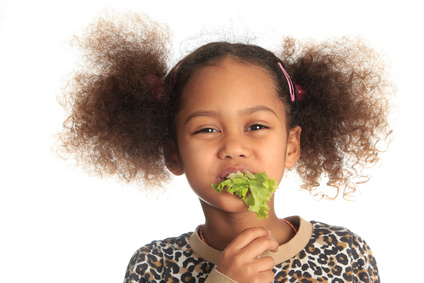Parenting in times of ill health
We all want to protect our children from pain and it is hard to realise
that we can’t always do so, or necessarily make it better. Being a
parent can be tough enough at the best of times but when your child or
another close family member is ill it takes things up another level.
Illness, whether mild or serious, disrupts family life both practically
and emotionally. However, with a bit of thought and preparation,
parents can play a big role in helping their children understand and
manage what’s going on.
Health & illness
...Read More
Managing food issues
How and what we feed our children can be one of the most fraught areas
of parenting, sometimes leading to feelings of intense worry, guilt or
even shame. Are they eating enough? Are they over eating? When will
they eat more vegetables? How much sugar is too much? When we as
parents add in our own often complex relationships with food, plus the
ever present societal beliefs around health and body image, it becomes
clear why it can feel such an issue.
Food & eating
...Read More
Over / under scheduling children's activities
The opportunities available to children today in terms of
extra-curricular activities have grown enormously in recent years.
Where we once had to wait until age 7 just to join our local brownies or
scouts, we now have music classes for babies, French for toddlers and
even circus skills for under 5’s, all within striking distance.
Understandably, this often leaves parents worrying about how to squeeze
even more into their already hectic days in order not to feel that their
children miss out socially, developmentally and often academically too.
Setting boundaries
...Read More
The Guilty Working Parent
It is a rare parent who never feels any guilt in relation to their
parenting or who doesn’t wonder whether they are doing the right thing
for their children at times. Going to work can allow a healthy break
from thinking about your children and their needs but it also invariably
complicates matters too.
Most commonly guilt creeps in when we
feel we are falling short of our expectations of ourselves and feel
we’re not doing enough or being good enough as a parent.
Parental self awareness
...Read More
Talking about difference with children
We live in an increasingly diverse society and children will inevitably
have contact with people from many different cultures, ethnicities and
family compositions. Parents play an important role in teaching
children tolerance and appreciation of difference in order for them to
flourish and succeed in their communities and the wider world as they
grow up.
Children's difficult questions
...Read More
Parenting 'tweens' and young teenagers
As our children grow up our relationship with them changes, as does the
way we parent them. Some children move with relative ease through the
‘tween’ stage and into teenage years, others have a rockier ride. How,
as parents, can we help our children negotiate these transition years as
smoothly as possible?
Tweens and teenagers
Setting boundaries
...Read More
Sleep guidelines for children
Along
with new research from University College London highlighting the importance of a regular bedtime for
children, research has long shown the negative
impact of inadequate sleep on cognitive, behavioural and emotional
functioning in children. But how much sleep do children really need for
optimal functioning? The National Sleep Foundation gives the following
guidelines:
Newborns (0-2 months): 12-18 hours
Infants (3-11 months): 14-15 hours
Toddlers (1-3 years): 12-14 hours
Pre-schoolers (3-5 years): 11-13 hours
School age children (5-10 years): 10-11 hours
Pre-teens/Teens (10-17 years): 8.5-9.25 hours
Adults: 7-9 hours
Good luck with factoring in some early bedtimes!
Sleep & bedtime
...Read More
Bedwetting
Many children manage toilet training well but staying dry at night isn’t always so easy to master.
We look at the developmental process involved and how parents can help maximise children's chances of going through the night with a dry bed.
Sleep & bedtime
...Read More
Fathers - making the most of your time with your children
Fathers have a powerful role to play in their children’s lives as they
often provide very different input than mothers. While the
degree that a father can be involved on a day to day basis varies
greatly depending on the particular family set-up, fathers can make the
most of whatever time they do have with their children and maximise
their impact, by considering a few areas in particular:
Parental self awareness
...Read More
Talking with children about death
Children become aware of death, at some level, at a very young age.
They come across it in fairytales, on news reports, they see dead
insects or animals and may hear adults discussing it quite regularly.
Most children will have their first personal experience of
bereavement through the death of a pet or elderly relative and the
following might be useful to think about when helping a child to
understand and adjust:
Children's difficult questions
Goodbyes & endings
...Read More
Making things work after parental separation
Parenting can be hard at the best of times. It is hard enough when the
job is shared by two cohabiting parents, but when couples separate,
whole new ways of managing, both practically and emotionally, often have
to be found.
No matter how recently or long ago you separated,
there are some golden rules for parents who share custody of their
children that will help smooth the process and keep it as positive as
possible for all concerned.
Children's difficult questions
Parental self awareness
...Read More
Refereeing Sibling Fights – Pitfalls and Alternatives
All siblings argue, at least occasionally, and as a parent it can
sometimes feel that you’re constantly called upon to smooth over
disputes and re-establish a fair playing-field. However, it quickly
becomes clear that trying to referee puts you in an impossible position
as you can never get it right for both children, sibling disputes are
rarely clear-cut.
Siblings & other children
...Read More
Lying in children
Lying is prolific in our culture. We all lie every day: white lies to save someone’s dignity or help them feel better are a part of adult life. Despite this, parents understandably tend to get furious or upset when
children don’t tell the truth. Despite our own “minor” lying
behaviours, we don’t want our children to lie to us, or to develop into
adults who lie beyond the “acceptable” norm. Preventatively, there are a
few things we can think about as parents:
Setting boundaries
Parental self awareness
...Read More
Christmas Parenting Tips
We all want Christmas to be a magical and happy time for our children. However, the extra demands and stresses on parents during the festive season, combined with highly excitable children, can mean that it doesn’t always live up to expectations. While the usual tips for better organisation and careful planning can go a long way to relieving some of the pressure, it is worth taking time to consider how to avoid some common causes of family tension.
Christmas
...Read More
Sharing
It’s normal for children to find it difficult to allow another child to
play with their toys or give something that they are enjoying playing
with to another child. However, we generally want our children to be
kind and popular and the ability to share is a very important part of
their socialisation.
Siblings & other children
...Read More
Does no always mean no?
When you’re feeling tired, stressed, rushed or you haven’t had time to
think something through, it can be easy to automatically say no to a
child’s request, only to realise quite quickly that it was actually a
reasonable one.
The idea of going back on a “no” can leave some
parents fearing that their child is getting one over on them. This can
lead to them sticking to it at all costs, even setting up a huge battle
over something very small, secretly wishing they had never said no in
the first place, and leaving both parent and child feeling terrible.
Setting boundaries
...Read More
Set a good example
Psychologists often talk about the importance of modelling for children
to learn appropriate behaviours, but what do we actually mean by that?
Children identify with people whom they spend time with and feel closest
to such as parents, peers, teachers and other important people in their
lives. They are influenced by and learn from these ‘models’, taking on
the behaviours, attitudes or beliefs that they see. Parents often worry
that another child may be a ‘bad influence’ on their child but it is
also worth examining the influences within the home.
Parental self awareness
...Read More
A tip to increase their 5-a-day
A simple but effective way to encourage children to eat (or at least
try) more fruit and vegetables is to get them involved in one way or
another.
One way of doing this with school aged children (or even
pre-schoolers who are learning their letters) is to write down as many
fruits or vegetables beginning with each letter of the alphabet and get
their agreement to trying one each day. There are some ideas below or
the supermarket shelves are good for inspiration.
Food & eating
...Read More
Babysitters
Children, even within the same family, can have
very different responses to being left with a babysitter when their parents go
out. Some love it and feel excited at
the change in routine, others prefer to stick to what they know best and
complain about these annoying departures from the usual proceedings. Both these responses are quite normal and
should not deter parents from enjoying nights out either more or less
frequently than they want to.
For more anxious children, there are a few
things that will help contain their fears about this type of separation and
hopefully prevent any more extreme worries from developing. For many parents, these things will be put in
place quite naturally, but sometimes if you’re feeling anxious yourself, it can
be easy to overlook one or more of these stages:
Settling your child
...Read More
Sibling birthdays
For young children, a sibling’s birthday can be a challenging time.
While they may welcome the excitement of extra treats and parties, they
are also very likely to feel quite envious of the increased attention
bestowed on the birthday child.
Children under 5 will often show
this jealousy in quite open and obvious ways, such as having tantrums,
ripping open or breaking sibling’s presents. Slightly older children
are more likely to feel torn between understanding that such behaviour
is unreasonable and yet still feeling quite deeply resentful of their
brother or sister. Even worse, it starts to become clear that despite
their feelings, they are actually expected to enjoy the day and be happy
for their sibling.
Siblings & other children
...Read More
